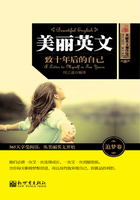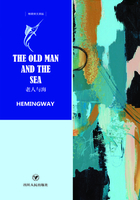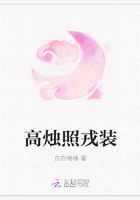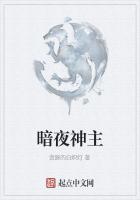The movement of translating and writing scriptures in Chinese that occurred in the middle of the 17th century accelerated the process of the nationalization of Islam in China, making Islam, a religion coming from the outside world, not only root deeply in China, but also amalgamated with traditional Chinese culture, for Islam in China by then had taken on obvious characteristics of traditional Chinese culture, whether in the form of presentation or deep-seated doctrine and ethics.
Firstly, Islam in China has been influenced more or less bythe traditional Chinese culture on aspects of architecture, festivals and customs. Almost all the mosques in Arab and Islamic countries in central Asia have domes on the roofs and minarets for observing the moon and calling for prayers. But in China, except a few ancient mosques in coastal area and in Xinjiang such as the Guang Ta Mosque in Guangzhou, the Qing Jing Mosque in Quanzhou and the Eidkah Mosque in Kashgar that were constructed with Arab and Central Asian architecture, most of the mosques in the inland, such as the Hua Jue Xiang Mosque in Xi"an, the Jing Jue Mosque in Nanjing, the Niu Jie Mosque and the Dong Si Mosque in Beijing, the Qiao Men Mosque inLanzhou, the Nan Guan Mosque in Linxia, the Southern Mosque in Jinan and the Souther Mosque in Cangzhou, all adopted traditional Chinese architecture, which is a temple-like compound with buildings around a square courtyard, and a screen wall facing the gate. The construction inside the mosque was richly ornamented with pillars and beams carved and painted, and also decorated with horizontal inscribed boards and antithetical couplets. For instance, there are four Chinese characters inscribed on the ridge of the Jing Jue Mosque: Wu Xiang Bao Dian (temple without idols), displaying unique Chinese Islamic architecture.
As for religious festivals, Chinese Muslims, as with other Muslims around the world, regard the three traditional Islamic festivals, namely "Id al-Fitr (fast-breaking festival), "Id al-Azha (festival of sacrifice) and Mawlid al-Nabiy (birthday of the Prophet Muhammad and also the day when he passed away), as the most important festivals. However, in some places in China, Muslims also call "Id al-Azha “Festival of Fidelity”? Just from the naming of the festival we can see that it has taken on Chinese characteristic. Usually in foreign countries, Mawlid al-Nabiy (March 12th A.H., both the birthday of the Prophet Muhammad and the day when he passed away) is a day when Muslims get together to celebrate the birthday of the Prophet Muhammad,and commemorate him by reciting the Holy Qur"an and narrating the story of his life. However, Chinese Muslims celebrate it on any day of March A.H., not just March 12th. In doing so, they also commemorate the anniversary of the death of their ancestors, reciting the Holy Qur"an and slaughtering sheep or cattle to dine together to show their condolence. In fact, they celebrate this festival as the Anniversary of the Prophet"s Demise. Besides the above three festivals, the Chinese Muslims also attach importance to Ashura and the Anniversary of Fatimah"s Demise. Ashura is on January 10th A.H., being the day to commemorate theoccasions when Prophet Adam, Prophet Ibrahim and Prophet Nuh were rescued from danger. In some places in China, Muslims also call this the “Festival of Porridge”, believing that Prophet Nuh relieved the human race with the last porridge made of beans after floating in the flood for six months, so men after him commemorate it by eating porridge on this day. The way they celebrate this festival and the story they tell concerning it is different from that in foreign countries. Anniversary of Fatimah"s Demise is on June 15th A.H., being the day to commemorate the demise of Fatimah, daughter of Prophet Muhammad and wife of Ali. Chinese Muslims respect Fatimah far more than they respect Khadija, wife of the Prophet. This is also different from what foreign Muslims do. In addition, some Muslims in the Northwest worship the murshids (guides) and saints of their sect or Menhua, and hold ceremonies to commemorate the anniversary of their demise, just as they celebrate Mawlid al-Nabiy. Sometimes there are several thousand followers getting together for the ceremony, quite a rare phenomenon abroad.
In respect of religious customs, only on few points such as taboo with food are Chinese Muslims completely in accordance with foreign Muslims, and on other aspects such as language, name, dress, wedding and funeral they have taken on the featuresof Chinese habits and customs. Chinese Muslims use Arabic or Persian words and expressions only in religious services, but speak Chinese during ordinary times. Their dress has evolved to be similar with that of the Hans. They use Chinese name, and will be given an Islamic name (selected from the names of prophets, saints or noble persons) at birth by an Imam, or sometimes combine Chinese name and Islamic name together to be their full name. As for the custom on marriage, they often invite an Imam to preside over the celebrations and celebrate it by playing the flute andtrumpet as the Hans do. Of course it is not in line with the teaching of Islam that music is prohibited on the wedding except drumming. Chinese Muslims always practice a rapid and simple funeral (the deceasedmust be buried withinthree days with the bodyonly covered with white cloth, no cerements or any burial articles) as is required by Islamic Law, and invite an Imam to recite the Holy Qur"an. On the other hand, Muslims in certain places in China show their condolence to the deceased by wearing mourning apparel, ornamenting the tomb, and commemorating the 7th day, the 40th day, the hundredth day, one-year anniversary and three-year anniversary. Obviously they have been influenced by Chinese traditions and customs on this aspect.















